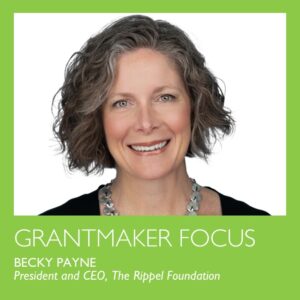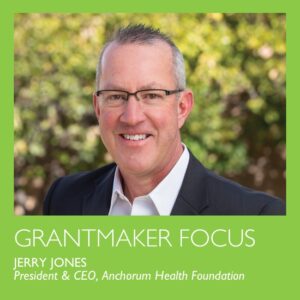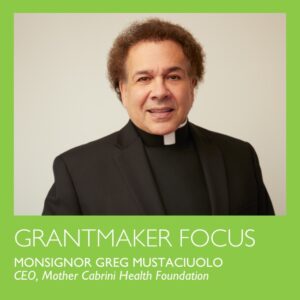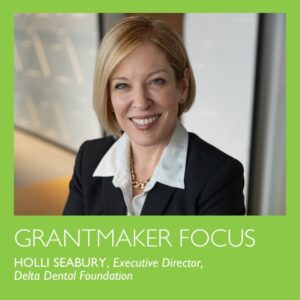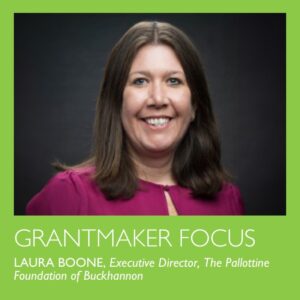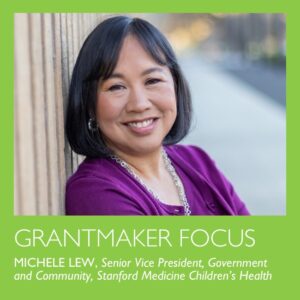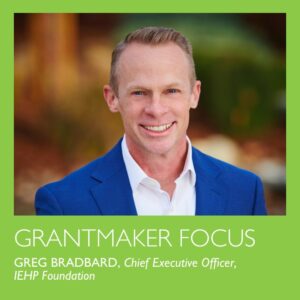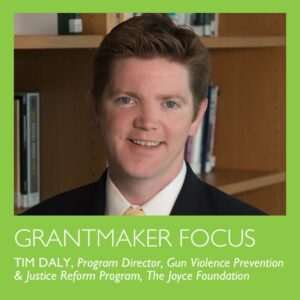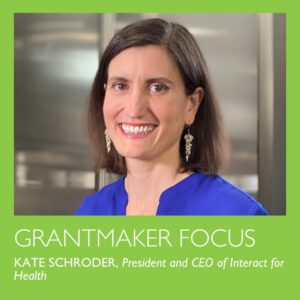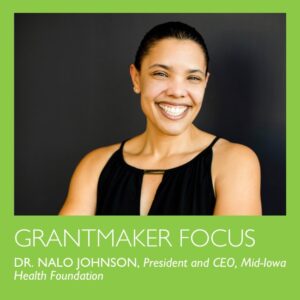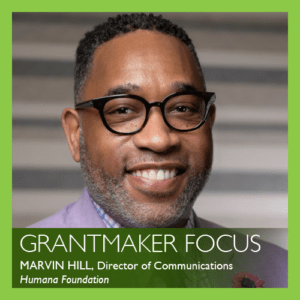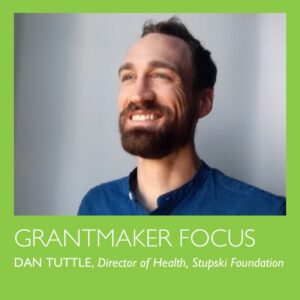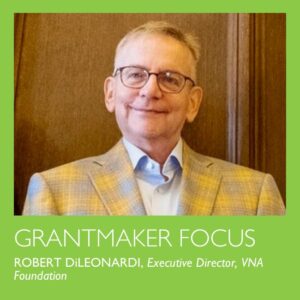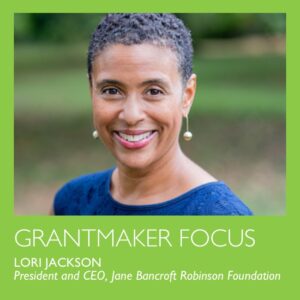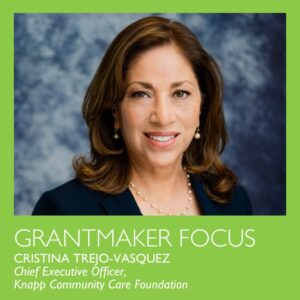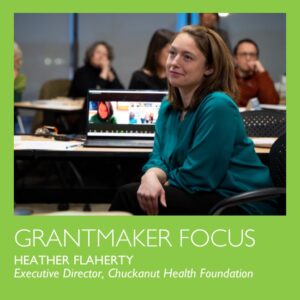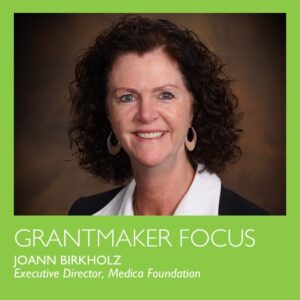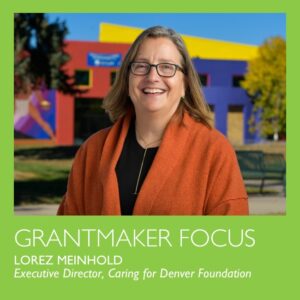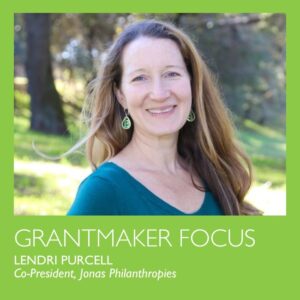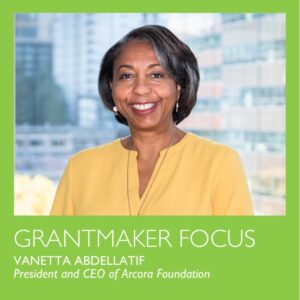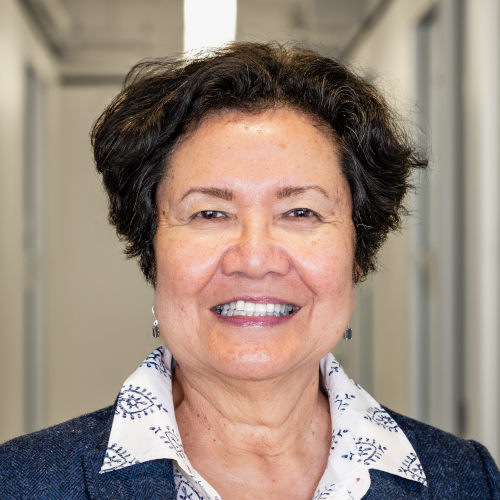With over 225 Funding Partners, Grantmakers In Health (GIH) is a nonprofit, educational organization dedicated to helping foundations, corporate giving programs, and other philanthropic organizations improve the health of all people. Its mission is to foster communication and collaboration among grantmakers and others and to help strengthen the grantmaking community’s knowledge, skills, and effectiveness. GIH develops programming, provides technical assistance, and hosts convenings to help funders learn, connect, and grow.
What is a Funding Partner?
Funding Partners are philanthropic organizations and advisors that make annual financial contributions to support GIH’s work, gaining exclusive access to GIH’s network and programming.
GIH’s network spans a diverse constituency of foundations, corporate giving programs, philanthropic advisors, government agencies, and other health funders. If this sounds like you, we hope you will consider joining GIH to participate in.
What are the benefits to being a Funding Partner?
Funding Partners have access to a variety of exclusive opportunities and resources on health issues and philanthropy, such as:
- Discounted registration rates for our Annual Conference on Health Philanthropy, the largest gathering of health funders in the country, and other national programs like the Health Policy Exchange or Rural Health Philanthropy Partnership Meeting
- Technical assistance and strategic guidance from GIH’s highly experienced program team
- Learning communities for CEOs, policy staff, communications staff, and funders interested in firearm violence prevention
- Webinars, meetings, and events featuring leading experts on health policy, philanthropy, government, and related areas
- Exclusive E-forums for peer learning and connection
- Platforms to share recent insights, grants awarded, reports, and other topical work with the field of health philanthropy through Grantmaker Profile features, Views from the Field articles, and GIH’s social media channels
- Insider emails featuring timely news, resources, and events, including our monthly Health Policy Update newsletter
- Leadership opportunities to help shape GIH’s programming and priorities—Funding Partners are invited to join our annual Call for Proposals committee, Awards Committee, and weigh in on other GIH programming
- Opportunity to nominate colleagues and peers for the biennial Terrance Keenan Leadership Institute for Emerging Leaders
- Free job postings focused exclusively on health philanthropy
- Tools to conduct custom searches of GIH Funding Partners
- Orientations to GIH resources for Funding Partner staff and trustees
- Discounted products, subscriptions, and services that benefit the philanthropic field through GIH's membership of the United Philanthropy Forum–this offer includes a 25 percent discount to Inside Philanthropy, the leading publication covering foundations and major donors, and pressing issues in philanthropy
About GIH Funding Partners
Which funders work with GIH? The full list of Funding Partners is publicly available here. Learn more about GIH’s 200+ Funding Partners, including asset size, geography, and focuses.
Why is being a Funding Partner important?
Grantmakers In Health has a vision of better health for all through better philanthropy. You help bring that vision to life by utilizing the tools, resources, and connection-building that GIH offers to strengthen your efforts. Of course, above and beyond the direct benefits of being a Funding Partner is the important contribution you make to the betterment of the field of health philanthropy.
Our mission is to help grantmakers do their work more efficiently and effectively, and to assure that grantmakers have access to substantive information on key health and operational issues. By supporting GIH and our efforts, you are helping both to raise the professionalism of the field, and to promote the value of health philanthropy to a wider audience of policymakers, the media, and the public at large.
Who is eligible to become a Funding Partner?
GIH limits Funding Partner status to organizations who fall into one of the following categories:
- Entities whose primary function and activity is charitable grantmaking to multiple individuals or organizations
- Operating foundations
- Regranting organizations, also known as intermediaries, for whom grantmaking is at least a substantial portion of your annual budget and who donate to more than one entity or organization
- Philanthropic advisors who work closely with foundations, whether as consultants or on their behalf. Join as an Advisor
For more details about eligibility, please refer to our Funding Partner Criteria and Eligibility guide or contact Cecilia Amor Kramer.
2024 Funding Partner Giving Levels
| Annual Health Funding* | 2024 Funding Contribution |
|---|---|
| <$500k | $2,000 |
| $500k -$2M | $3,325 |
| $2M - $3M | $4,100 |
| $3M - $4.5M | $6,150 |
| $4.5M - $6M | $8,725 |
| $6M - $7.5M | $11,825 |
| $7.5M - $10M | $13,900 |
| $10M - $15M | $15,450 |
| $15M - $25M | $17,550 |
| $25M - $50M | $20,150 |
| $50M -$150M | $24,300 |
| > $150M | $28,000 |
| Government Grantmaker | $3,325 |
* Contribution levels are calculated according to annual health funding (for most partners this is the annual qualifying distribution). If your organization isn’t subject to a qualifying distribution, please contact Cecilia Kramer to calculate your contribution or arrange payment.
